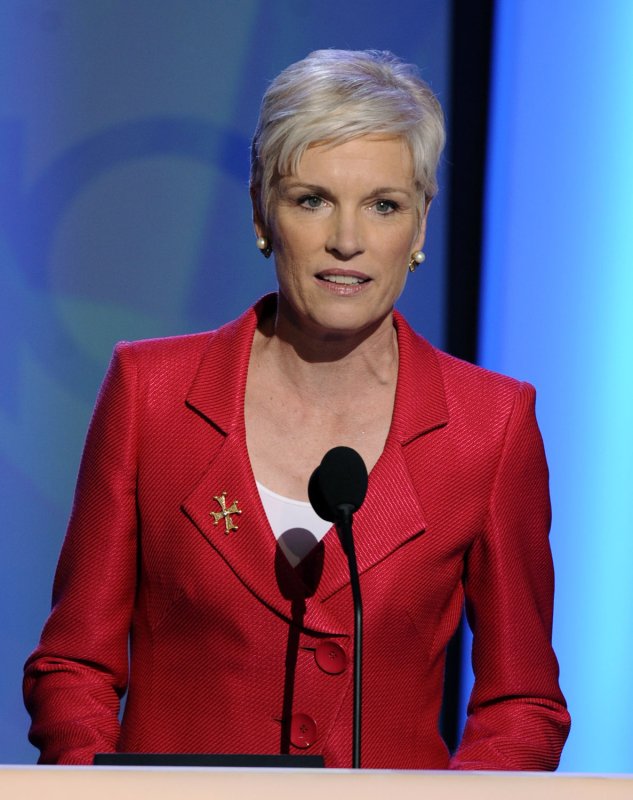Cecile Richards, President of Planned Parenthood, delivers remarks during the second day of the Democratic National Convention in the Pepsi Center in Denver on August 26, 2008. (UPI Photo/Kevin Dietsch) |
License Photo
WASHINGTON, March 3 (UPI) -- The Planned Parenthood Federation of America is fighting legislation currently in the U.S. Senate to cut its federal funding, officials said Thursday.
Cecile Richards, president of the nation's largest women's health organization, said the political battle shifted the debate from abortion rights to women's health generally, thereby accomplishing what abortion rights groups have tried to do for the last 10 years, Politico reported.
"Going after the strongest brand in women's health in America is one of the stupidest things the Republican Party could have done," Richards said.
Rep. Mike Pence, R-Ind., two weeks ago led the House in overwhelmingly passing the measure as an amendment to a spending bill. It may be changed, however, to a stand-alone bill in the Senate, Politico reported.
"The majority of Americans are opposed to using their tax dollars to fund abortions at home and abroad. Therefore, Congressman Pence believes the majority of Americans will also agree that the nation's largest abortion provider should not also be the largest recipient of federal funding under Title X," said Matt Lloyd, Pence's spokesman.
Planned Parenthood has been showing members of the Senate the results of a poll conducted by the Democratic company, Public Policy Polling, which strongly suggests voters in 10 crucial states don't think of Planned Parenthood as merely an abortion provider, Politico reported.
The group's officials said providing abortions -- which has long not been federally funded -- is a small part of the services it offers women, such as 830,000 breast cancer checks, 1 million cervical cancer screenings and birth control prescriptions for 2.5 million people each year.















